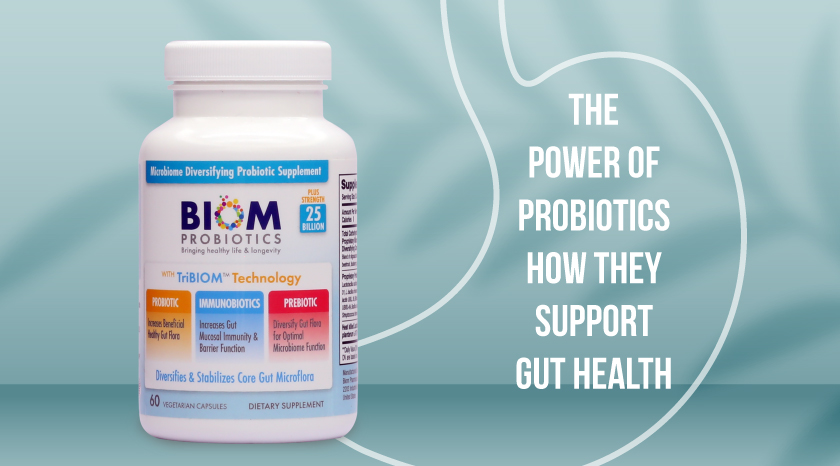In the intricate ecosystem of the human body, the gut microbiome reigns supreme as a vital hub of health and vitality. Comprising trillions of bacteria, fungi, and other microorganisms, this dynamic community plays a pivotal role in digestion, immune function, and overall well-being. Enter probiotics, the friendly bacteria hailed for their remarkable ability to support gut health and promote balance within this complex ecosystem. Let’s delve into the fascinating world of probiotics and uncover how they work their magic in the body to nurture gut health.
- Restoring Microbial Balance: The Key to Gut Harmony The gut microbiome is a delicate balance of diverse microorganisms, with certain species playing beneficial roles in digestion, immune function, and metabolism. However, factors such as poor diet, stress, antibiotics, and environmental toxins can disrupt this balance, leading to dysbiosis—an imbalance of gut bacteria associated with various health issues. Probiotics work by introducing beneficial bacteria into the gut, helping restore microbial balance and promote a harmonious environment conducive to health and well-being.
- Enhancing Digestive Function: Supporting Smooth Sailing Optimal digestion is essential for breaking down food, absorbing nutrients, and eliminating waste—a process orchestrated by the gut microbiome. Probiotics play a crucial role in supporting digestive function by producing enzymes that aid in the breakdown of carbohydrates, proteins, and fats. Additionally, certain probiotic strains help ferment dietary fiber, producing short-chain fatty acids that nourish the cells lining the gut and support overall gut health. By enhancing digestive function, probiotics contribute to smoother digestion and improved nutrient absorption.
- Boosting Immune Function: Guardians of Gut Immunity Did you know that the gut is home to 70% to 80% of the body’s immune cells? This close relationship between the gut microbiome and the immune system underscores the importance of gut health in overall immune function. Probiotics help modulate the immune response by interacting with immune cells in the gut-associated lymphoid tissue (GALT) and producing compounds that regulate inflammation. By promoting a balanced immune response, probiotics help defend against pathogens, reduce the risk of infections, and support immune resilience.
- Alleviating Digestive Discomfort: Soothing Troubled Waters From bloating and gas to diarrhea and constipation, digestive discomfort can significantly impact the quality of life. Probiotics offer relief by exerting beneficial effects on gut motility and function. Certain probiotic strains help regulate bowel movements, reduce intestinal inflammation, and alleviate symptoms associated with irritable bowel syndrome (IBS), inflammatory bowel disease (IBD), and other digestive disorders. By calming the gut’s waters, probiotics relieve discomfort and promote digestive harmony.
- Supporting Mental Health: The Gut-Brain Connection Emerging research has highlighted the profound influence of the gut microbiome on mental health and well-being—a concept known as the gut-brain axis. Probiotics play a role in this intricate relationship by producing neurotransmitters like serotonin and gamma-aminobutyric acid (GABA) that influence mood and behavior. Additionally, probiotics help regulate the production of inflammatory cytokines that can impact brain function and mood. By nurturing gut health, probiotics may support mental wellness and contribute to a positive mood and outlook.
Probiotics are true allies in the quest for gut health and overall well-being. Probiotics play a multifaceted role in promoting gut harmony by restoring microbial balance, enhancing digestive function, boosting immune resilience, alleviating digestive discomfort, and supporting mental health. Embrace the power of probiotics as a cornerstone of your wellness routine and unlock the transformative potential of a healthy gut for vitality and longevity.




